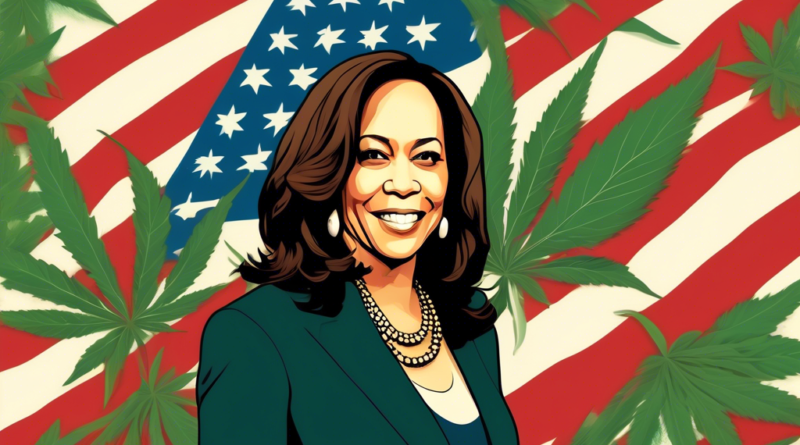Kamala Harris’s Bold Pledge: Federal Marijuana Legalization for Social Justice and Economic Inclusion
Kamala Harris’s Commitment to Change
Kamala Harris has taken a bold step in American politics by pledging to legalize recreational marijuana at the federal level, a move that would align national policy with the 24 states where it is already legal. This announcement highlights a significant potential shift in the nation’s drug policy, suggesting a more unified approach to cannabis legislation.
Harris’s stance is not just about aligning state and federal laws but also about addressing social justice concerns. Her support for legalization emerges from a desire to rectify the disproportionate impact current marijuana policies have on Black communities. Historically, Black Americans face more arrests and convictions for marijuana offenses, despite similar usage rates compared to other races.
Addressing Historical and Economic Disparities
The statistics tell a sobering story. Black Americans, constituting 13.7% of the U.S. population, account for a staggering 29% of drug-related arrests. This disparity is particularly stark in marijuana offenses, where they are arrested at rates four times higher than white individuals. Harris sees federal legalization as a step toward correcting these injustices.
Beyond addressing inequalities in the justice system, Harris aims to open up economic opportunities within the burgeoning cannabis industry. This is crucial in ensuring that Black entrepreneurs and workers, who have largely been excluded from this profitable sector, can participate equally in the market’s growth.
An Evolving Stance and Broader Agenda
Over the years, Kamala Harris’s views on marijuana have evolved. In 2010, she opposed legalization efforts in California; by 2018, she co-sponsored a bill to legalize recreational cannabis use federally. This transformation reflects a growing awareness and responsiveness to the societal impacts of drug policies.
Harris’s commitment to cannabis legalization is a component of her broader ‘Opportunity Agenda’ for Black men. This initiative seeks to provide economic growth through various means, including forgivable loans for Black entrepreneurs, comprehensive training programs, and support for Black farmers and ranchers. It highlights a dedication not just to policy change, but to economic empowerment and health advancements.
Public and Political Considerations
The promise of marijuana legalization enjoys wide public support, with a Gallup poll showing 70% voter approval. This consensus indicates a favorable public climate for Harris’s proposal, suggesting potential smooth sailing for related legislation should she be elected president.
Politically, this pledge is strategic, aiming to strengthen her appeal among Black voters, a key demographic for Democratic success. Recent polling shows her backing at 78% among Black voters, signifying room for growth to reach historical support levels.
Meanwhile, this policy promise sets Harris apart from opposing Republican figures like Donald Trump, who previously threatened action against states legalizing marijuana but has since moderated his tone. Harris’s definitive pledge could thus become a pivotal issue in the national political discourse.

